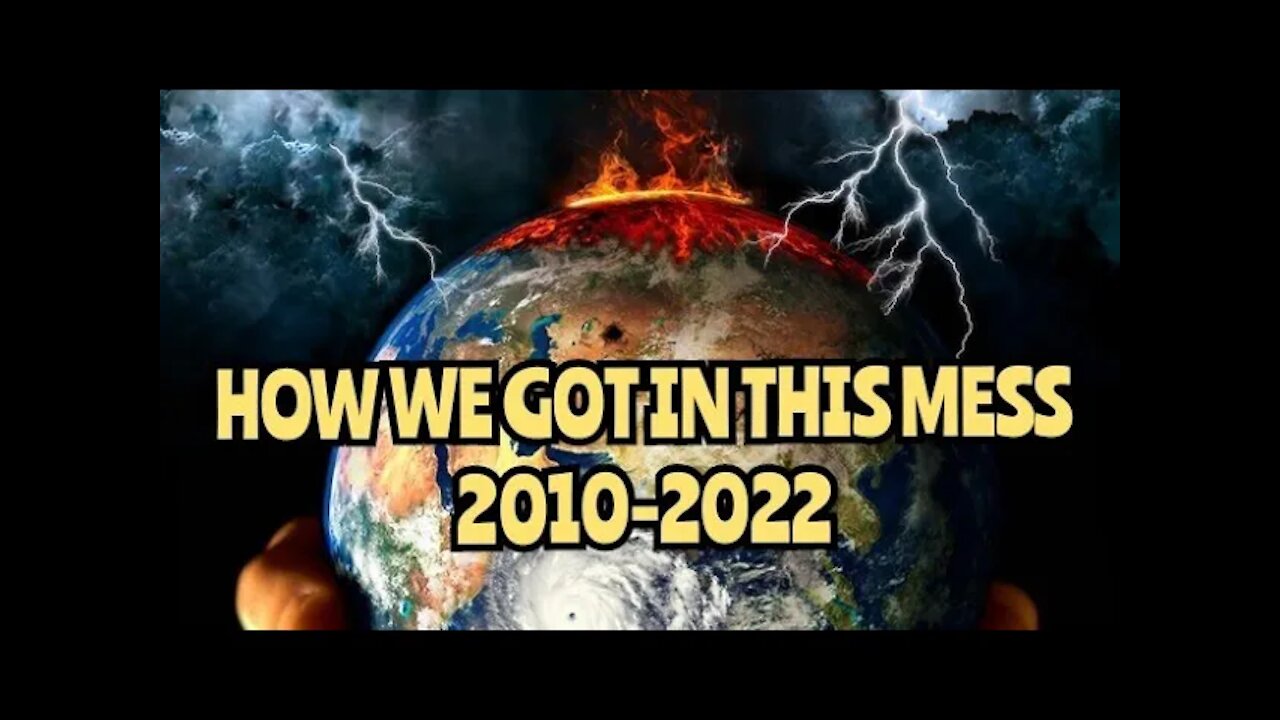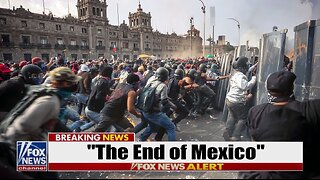Premium Only Content

In Depth explanation how we got into this mess ! 2010 - 2022
From Hong Kong and France, to Russia and Iran, citizens across the world took to the streets in 2019 to vent their frustrations and push for change. Much has been written on the long list of protests, but why did they take place? What was behind the mobilization of millions of demonstrators? While the specific drivers vary and each protest movement exhibits its own nuances, there are certain threads which can be traced throughout the year’s major protests.
Economics
More than half a dozen protest movements were directly sparked by fiscal policies, austerity measures, or discontent with stagnating wages and a shrinking middle class. In France, the Yellow Vest movement held regular protests against the policies of President Emmanuel Macron. After the government of Ecuador announced new austerity packages, including the elimination of fuel subsidies and cuts to the wages of public employees, protests spread throughout the country.
In early 2019, President Emmerson Mnangagwa of Zimbabwe announced a 130 percent increase in fuel prices. Thousands of protestors gathered to oppose the measure. Similarly, in Iran, the government abruptly raised fuel prices by at least 50 percent overnight, and citizens protested throughout the country. The year-long protests in Haiti began after hikes in fuel prices as well, but have taken on broader political elements, including demands for the resignation of Haitian president Jovenel Moïse.
In Chile, protests came out of discontent over the cost of everyday amenities and services. After a hike in subway fares in Santiago, Chilean protesters jumped turnstiles and vandalized metro stations to encourage mass evasion of subway fares. In Lebanon, demonstrators took to the streets to protest the government’s plan to impose a new set of austerity measures, including taxes on Whatsapp calls.
In many of these countries—including Iran, Chile, and Lebanon—what began as a response to an economic policy quickly turned to expressions of long-time opposition to leaders and whole political systems.
Leaders
Many protests focused on opposition to an individual leader of a region or country. Some of these leaders were ousted, some were not, and many of the movements continue. In Algeria, Sudan, Puerto Rico, Bolivia, and Lebanon, leaders stepped down. In Sudan, Omar al-Bashir was deposed after ordering a violent crackdown on peaceful protests. President Abdelaziz Bouteflika of Algeria did not seek a fifth term after nationwide protests were sustained week after week throughout much of 2019.
Thousands of Bolivians in support of and against former President Evo Morales have protested across the country. After election results indicated that Morales had avoided the need for a runoff, accusations of a fraudulent vote sparked the unrest and his departure to Mexico.
Though protests have largely refrained from calling for his resignation, hundreds of thousands of demonstrators have taken to the streets in Colombia, in part to put pressure on President Iván Duque, demanding that his government uphold the peace agreement with the Revolutionary Armed Forces of Colombia (FARC).
Despite protests against leaders in the Czech Republic and Venezuela, Prime Minister Andrej Babis and President Nicolás Maduro have remained in office.
Autonomy
There were also protests in response to encroachment by sovereign states, nationalist groups, or something in between. In Iraq, anti-government citizens expressed their frustration with the long-term failures of the Iraqi central government. Protests intensified after clashes between the government and the first wave of demonstrators resulted in over 100 civilian deaths.
Opposition to the heavy influx of Chinese business ventures and infrastructure in Kazakhstan has fed anti-Chinese sentiment in the country. Though Kazakh leaders expected that Chinese presence would attract greater foreign investment and create jobs, anti-Chinese sentiment has grown in response to the growing political influence that China appears to have in Central Asia.
Perhaps the most recognizable movement in 2019 was in Hong Kong. Mass demonstrations there began in March in opposition to an extradition bill, which would have subjected citizens of Hong Kong to legal jurisdiction of mainland China. The bill was seen as the latest step by the Chinese government to undermine Hong Kong’s regional autonomy, underscoring what many believe is a fundamental difference and incompatibility in the identities of Hong Kong and China.
-
 3:01:12
3:01:12
Mike Martins Channel
4 hours ago $0.28 earnedMike in the Night E625-Next weeks News Today, Call ins, Headlines
1601 -
 5:20:41
5:20:41
SpartakusLIVE
8 hours agoSolos on WZ to Start then ARC?! || Friends: UNBANNED
38.6K1 -
 12:58
12:58
Cash Jordan
8 hours agoMexican MOB OVERTHROWS Capital... as "Socialist President" FLOODS AMERICA with CARTELS
22.9K11 -
 23:13
23:13
Jasmin Laine
9 hours agoPBO Breaks His Silence—“This Is Soviet Stuff”… and the Panel EXPLODES
18.7K17 -
 1:17:26
1:17:26
Jamie Kennedy
22 hours agoCatching Up With Deep Roy: JKX Stories, Star Wars Secrets, and Total Chaos | Ep 231 HTBITY
15K3 -
 1:28:42
1:28:42
ThisIsDeLaCruz
4 hours ago $1.59 earnedThe Secrets Behind Madonna’s Legendary Live Sound
19.3K7 -
 1:22:15
1:22:15
Glenn Greenwald
8 hours agoTrump and JD Vance Weigh in on the MAGA Civil War Over Tucker; Zelensky's Top Associates Embroiled in $100 Million Corruption Scandal; FBI's Ongoing Concealment About Trump Shooter | SYSTEM UPDATE #548
123K109 -
 2:34:51
2:34:51
megimu32
5 hours agoON THE SUBJECT: 2000s Pop Punk & Emo Nostalgia — Why It Still Hits
20.8K6 -
 3:44:13
3:44:13
VapinGamers
5 hours ago $1.17 earnedBattlefield RedSec - Getting Carried Maybe? I Need the Wins! - !rumbot !music
14.2K3 -
 1:02:08
1:02:08
BonginoReport
8 hours agoThe Internet’s NSFW Reactions To “Bubba” Email - Nightly Scroll w/ Hayley Caronia (Ep.179)
74.8K59